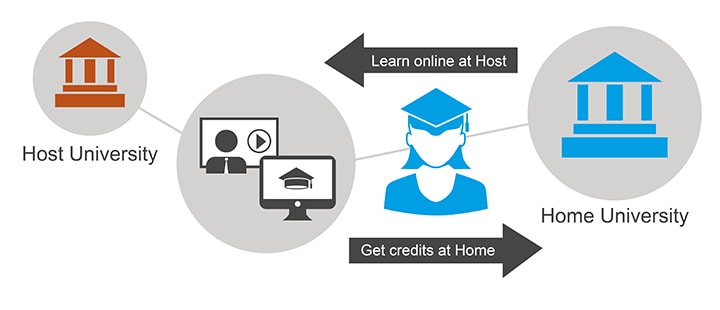TU Delft Students Can Earn Credit For MOOCs From Other Universities
TU Delft MOOCs have attracted more than 1.7M enrolments from 1.1M learners and have awarded more than 33 thousand certificates.
With 66 courses in subjects spanning business, engineering, and social sciences, and over 1.7 million enrollments to date, Delft University of Technology (TU Delft) is a powerhouse MOOC producer.
TU Delft is consistently ranked among the top European technology universities. Just as in on-campus courses, TU Delft strives to make its MOOCs professionally relevant and highly practical. As one might expect from a university with “technology” in its name, TU Delft has embraced online learning in its many forms. In addition to TU Delft’s own impressive MOOC offering, we at Class Central became intrigued by the university’s Virtual Exchange program, which allows students to earn academic credit for MOOCs from other universities.
Related
“MOOCs are here to stay.”
Class Central interviewed Willem van Valkenburg, Manager of Production and Delivery for Open, Online, and Blended Courses for TU Delft. Van Valkenburg’s team supports teachers in creating MOOCs, OpenCourseWare, professional courses, online academic courses and blended courses. TU Delft plans to launch more online learning programs in the near future. As van Valkenburg told us, “MOOCs are here to stay.”
This interview transcript has been edited for length and clarity.
How many total students have taken TU Delft’s courses? How many certificates have you awarded?
Our MOOCs have attracted more than 1.7M enrolments from 1.1M learners. We have awarded more than 33 thousand certificates.
How would you describe the impact of your MOOC program?
The MOOCs helps us with educating the world, especially to make a contribution to the UN sustainable development goals for sustainable energy, clean water and sanitation and sustainable cities. It helps to improve our campus education and also leads to more enrolments in our campus programmes. The MOOCs also generate a massive amount of data. We use the data for research in student behaviour and improving the quality of education. We are working closely together with industry partners in creating courses. This helps us, but also makes our courses more valuable for industry
How many people at TU Delft are involved in creating MOOCs – professors, videographers, etc.? Do you have dedicated staff that works on creating MOOCs in a centralized department or team?
We have a centralised team that help the professors. It is a team of 25 with e-learning developers, instructional designers, multimedia expert, copyright expert, administration, marketing, communication and business development. For the video production, we use the university’s studio and staff, called New Media Centre. For the creation of the content, a lot of work is done by the course teams that consist of the academic staff supported by student assistants.
Have MOOCs had any impact on on-campus courses or teaching?
All MOOCs are used in campus education in mostly blended ways.
They certainly have. All MOOCs are used in campus education in mostly blended ways. Next to that we have also set up a virtual exchange programme with other universities. This way our students can receive credit for MOOCs of our own university and of 8 other top universities in the world.
TU Delft has a large catalog of MOOCs (70+ courses listed on Class Central), spanning multiple disciplines, with many technical topics. What techniques are used in TU Delft’s courses to help students put technical skills into practice?
TU Delft is an engineering school with courses in science, engineering, and design. We try to implement the same didactical approach as our campus courses and that is active learning. Learners not just consume videos, but have to engage in various activities to support their learning. For example, this can be an online lab simulation, use Sketchdrive to share their drawings and comment on others, and participate in online game on railway engineering.

How many on-campus students have taken part in the Virtual Exchange program? How have they rated their experience?
Approximately 100 students participated and received a final grade in the global virtual exchange. A bigger percentage enrolled but dropped out before they started.
The most popular courses were:
- Data analysis
- Creative problem solving
- Astrophysics
- English Grammar and Style
The evaluation showed lots of enthusiasm among the participating students, but they would like to see a broader portfolio of courses to earn credits.
How do you choose which courses to include in the Virtual Exchange program?
Until now the approach was based on a bottom up approach. Teachers willing to participate in the programme. Next phase we will focus more on course mapping to have an attractive and broader portfolio for our students.
What are your future MOOC plans? Where do you see MOOCs going in the future?
MOOCs are here to stay. They will be incorporated in campus courses and will be part of short learning programmes, such as the Professional Certificate programmes and Micromasters we are participating in. We will launch more programmes in the near future.
Tags







Muvaffak GOZAYDIN
Willem
Also see my online university free 100 % MOOCs with Masters degrees . http://www.mguniversity2017.org Get your courses from 10.000 MOOCs provided by 800 universities . I selected only good ones .